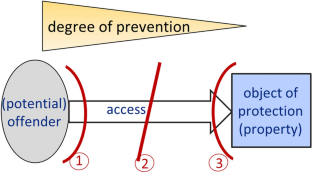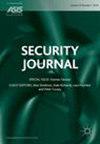State or private security supply? An analysis from the institutional economics perspective
IF 1.2
0 LANGUAGE & LINGUISTICS
引用次数: 0
Abstract
The issue of domestic security has become increasingly complex over the past decades. As there is an increasing overlap between private and public provision of security, the question of how to allocate responsibility for security between the public sphere (state) and the private sphere has become important. Concepts that can provide both clarity and sufficient complexity are much needed. This article offers an institutional economics concept. This implies a method where basic elements of neoclassical public finance (e.g. differences like provision v. production or public v. private goods) are combined with explicitly institutional and security economic elements (degree of prevention, specificity, repressivity, state monopoly on the use of force). As a result, a normative distinction between state and private security responsibilities based on qualitative arguments is offered.

国家或私人保安供应?制度经济学视角的分析
过去几十年来,国内安全问题变得越来越复杂。由于私人和公共安全提供之间的重叠越来越多,如何在公共领域(国家)和私人领域之间分配安全责任的问题变得重要。我们非常需要既清晰又足够复杂的概念。本文提出了一个制度经济学的概念。这意味着一种新古典公共财政的基本要素(例如,供应与生产或公共与私人物品的差异)与明确的制度和安全经济要素(预防程度,特殊性,压制性,国家对使用武力的垄断)相结合的方法。因此,在定性论证的基础上,提出了国家和私人安全责任的规范性区分。
本文章由计算机程序翻译,如有差异,请以英文原文为准。
求助全文
约1分钟内获得全文
求助全文
来源期刊
CiteScore
3.50
自引率
0.00%
发文量
35
期刊介绍:
The?Security Journal?is a dynamic publication that keeps you informed about the latest developments and techniques in security management. Written in an accessible style it is the world's premier peer-reviewed journal for today's security researcher and professional. The journal is affiliated to ASIS International and has an advisory board which includes representatives from major associations expert practitioners and leading academics.The?Security Journal?publishes papers at the cutting edge in developing ideas and improving practice focusing on the latest research findings on all aspects of security. Regular features include personal opinions and informed comment on key issues in security as well as incisive reviews of books videos and official reports.What are the benefits of subscribing?Learn from evaluations of the latest security measures policies and initiatives; keep up-to-date with new techniques for managing security as well as the latest findings and recommendations of independent research; understand new perspectives and how they inform the theory and practice of security management.What makes the journal distinct?Articles are jargon free and independently refereed; papers are at the cutting edge in developing ideas and improving practice; we have appointed an Advisory Board which includes representatives from leading associations skilled practitioners and the world's leading academics.How does the journal inform?The?Security Journal?publishes innovative papers highlighting the latest research findings on all aspects of security; incisive reviews of books videos and official reports; personal opinions and informed comment on key issues.Topics covered include:fraudevaluations of security measuresshop theftburglaryorganised crimecomputer and information securityrepeat victimisationviolence within the work placeprivate policinginsuranceregulation of the security industryCCTVtaggingaccess controlaviation securityhealth and safetyarmed robberydesigning out crimesecurity staffoffenders' viewsPlease note that the journal does not accept technical or mathematic submissions or research based on formulas or prototypes.

 求助内容:
求助内容: 应助结果提醒方式:
应助结果提醒方式:


